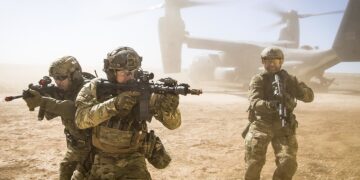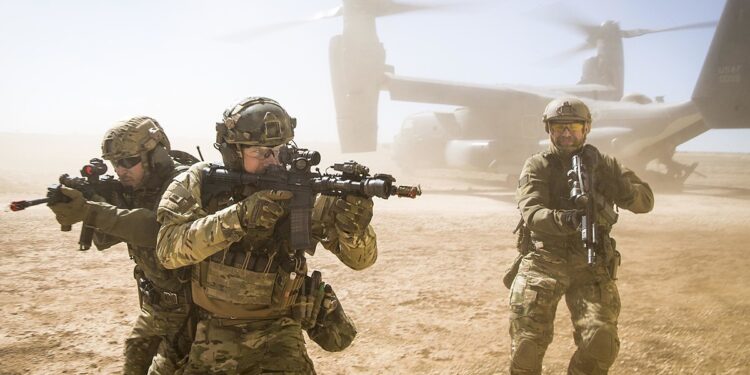US special forces, including navy Seals rescued an American citizen, Philip Walton in an operation on Saturday in northern Nigeria. US officials said several of his captors were killed during the operation
27-year-old Walton was abducted on Tuesday from his home in neighboring southern Niger, two US officials said on condition of anonymity, adding that no US troops were hurt, according to a report by The Guardian.
A diplomatic source in Niger said Walton was now at the US ambassador’s residence in Niamey.
“Big win for our very elite US special forces today,” Donald Trump wrote on Twitter.
Big win for our very elite U.S. Special Forces today. Details to follow!
— Donald J. Trump (@realDonaldTrump) October 31, 2020
The Pentagon confirmed the operation but did not provide the identity of the hostage.
In a statement, the US secretary of state, Mike Pompeo, said: “The United States is committed to the safe return of all US citizens taken captive. We delivered on that commitment late last night in Nigeria, where some of our bravest and most skilled warriors rescued a US citizen after a group of armed men took him hostage across the border in Niger.
“Thanks to the extraordinary courage and capabilities of our military, the support of our intelligence professionals, and our diplomatic efforts, the hostage will be reunited with his family. We will never abandon any American taken hostage.”
Walton, who kept camels, sheep and poultry and grew mangoes near the border with Nigeria, was kidnapped by six men armed with assault rifles who arrived on motorcycles at his home in southern Niger’s Massalata village early on Tuesday.
His wife, young daughter and brother were left behind. The perpetrators demanded money and searched the home before leaving with Walton.
Niger, like much of West Africa’s Sahel region, faces a deepening security crisis as groups with links to al-Qaida and the Islamic State carry out attacks on the army and civilians, despite help from French and US forces.
Four US soldiers were killed in an ambush in Niger in 2017, sparking debate about the US role in the sparsely populated West African desert that is home to some of the world’s poorest countries.
Terrorists have collected millions of dollars in ransom payments in recent years. The US government has frequently criticized other countries for paying.

































